5 things I've learned from using an EV as my family car
Switching from a petrol to an EV in London takes some adapting but I learned a lot

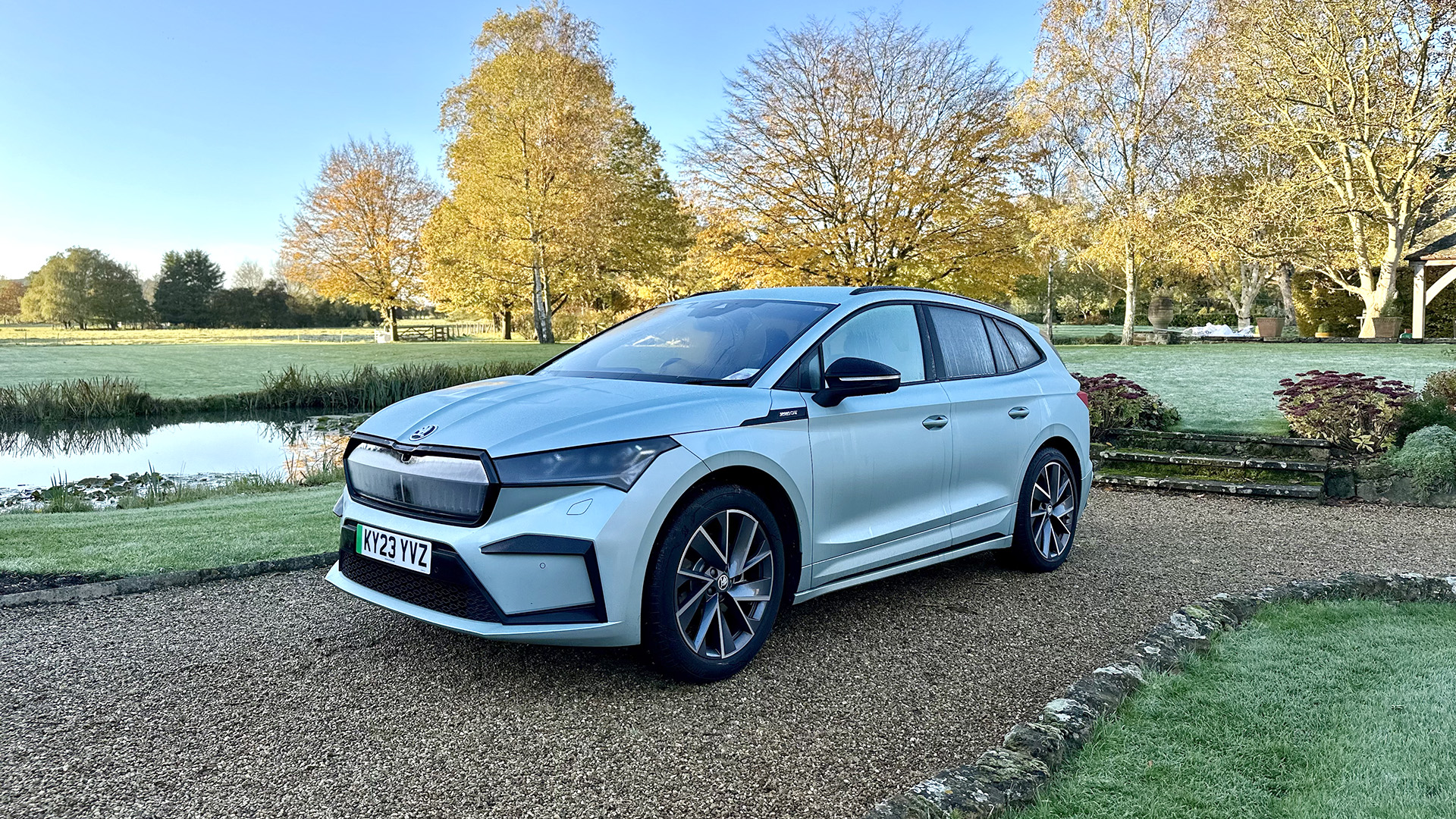
With two young kids and an ageing VW Golf, my wife and I are considering a new family car. Like most of the neighbours in our leafy London suburb, we’ll probably upsize to an SUV, so the remaining question is whether to EV, or not to EV.
In November 2023, 15.6% of all new car registrations in the UK were electric vehicles - so clearly battery technology and charging infrastructure are now credible
But what’s it really like living with one? A long-term loan of Skoda’s first full EV, the Enyaq iV 85x SportLine Plus, was our chance to go beyond a seamless 60-minute test drive and get the raw and unfiltered experience.
A midsize family SUV, the Enyaq fits the brief perfectly: safe, roomy, comfortable, reliable (oh, and great looking with the SportLine Plus trim), and armed with the latest battery tech – 77kWh battery and fast charging – it’s about as good as anything on the market right now.
For the next two months, we used the Skoda EV extensively, with local trips to the supermarket, weekends away to the countryside, and as a daily runner to kids’ after-school clubs etc. Would those last remaining reservations around range and charging infrastructure (plus there’s no charging at home with our regular on-street parking) be put to rest, or would we be startled?
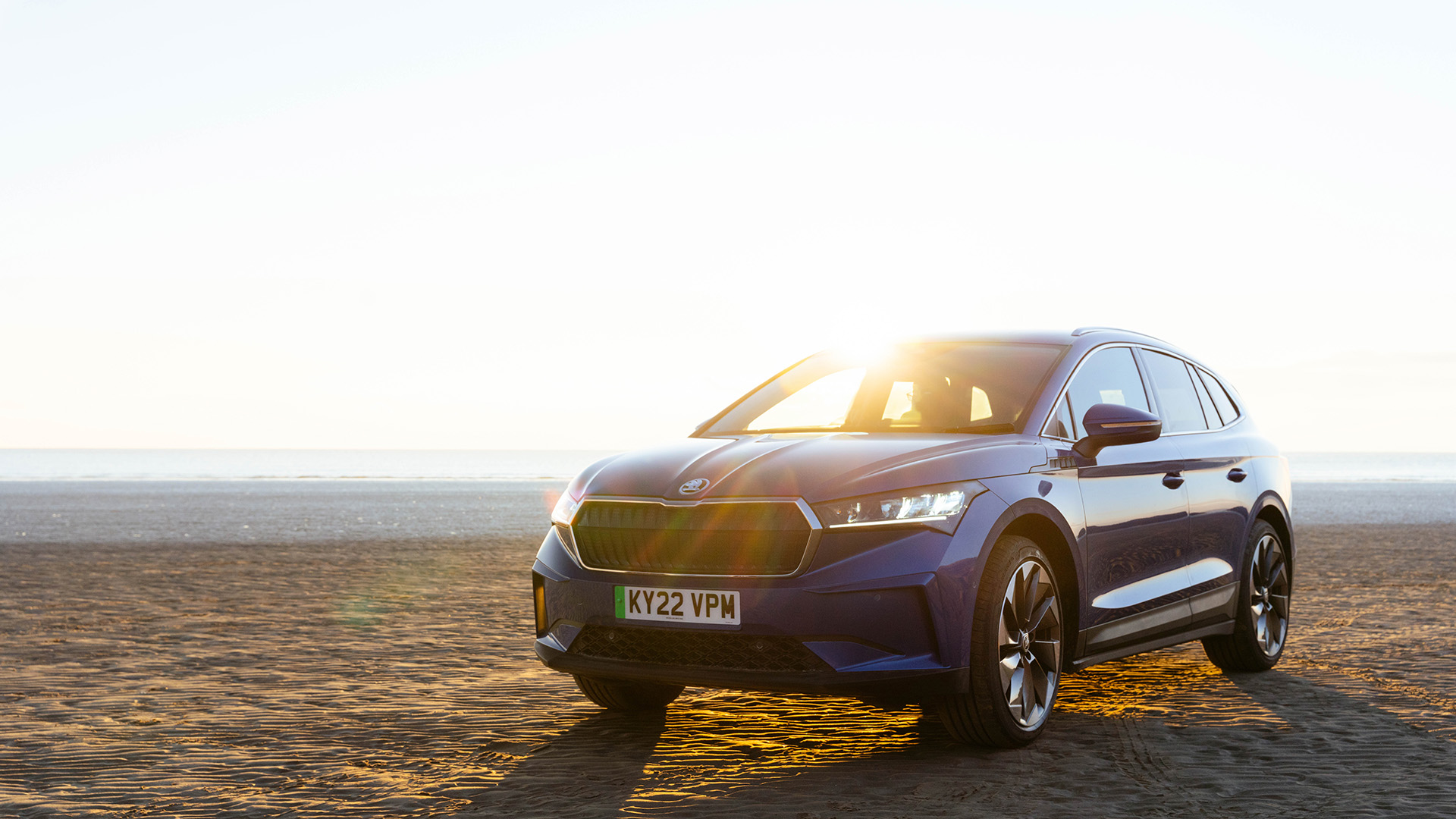
1. Driving is a joy
London rush hour commutes in our manual Golf are tiresome, plus with a recently broken left hip, at times the countless clutch movements could be painful. So the Skoda’s single-speed and silky smooth electric transmission was most welcome.
Moreover, the regenerative braking mode was a revelation. Upon releasing the accelerator pedal, the car actively decelerates (as energy is recouped to the battery) to such a degree that for much of a journey, there’s no need to even press the brake, never mind the clutch. The accelerator effectively becomes all three in one.
Get all the latest news, reviews, deals and buying guides on gorgeous tech, home and active products from the T3 experts
This EV specific driving mode – referred to as ‘one pedal driving’ – is a characteristic I hadn’t paid much attention to, but in practice, after dozens of family journeys, it's been a real winner. The rate of slowing applied is perfectly linear every time, so there’s no jolting or heavy braking which is inevitably the case without.
As a result, the passengers in the car enjoy a much smoother ride, and for the one behind the wheel, it makes it much more relaxing. I’m a huge fan, and my family are appreciative of it too – there’s generally less car sickness.
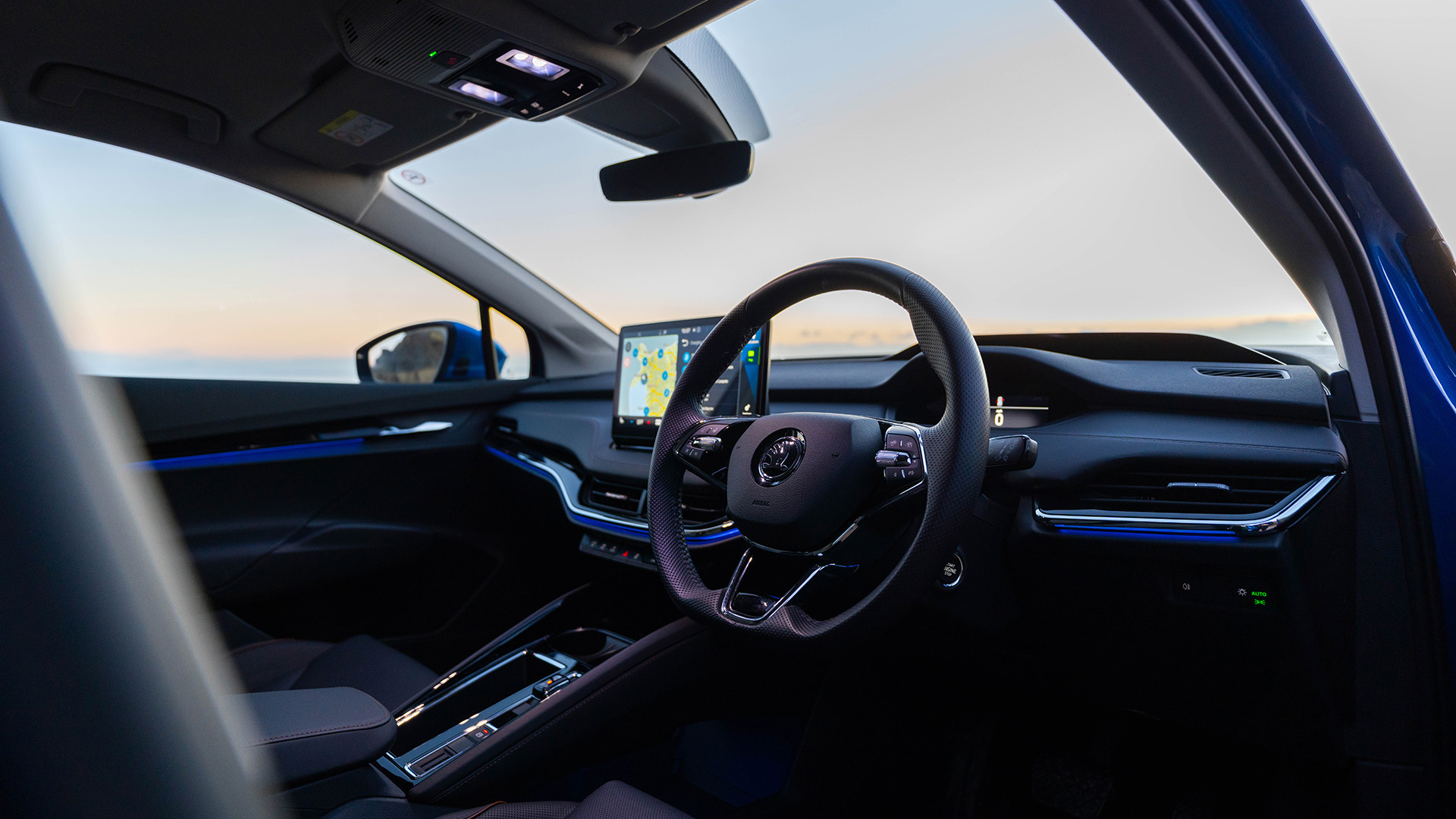
2. Reduced range hasn’t impacted us
The Enyaq iV 85x has an advertised range of 329 miles, which in real life terms – motorway driving, climate control, colder winter temperatures etc – ended up delivering us around the 200 mile marker.
It’s a significant drop from what we’re used to with the VW Golf, but given our longest drives are weekend trips to Warwickshire and Oxfordshire, which are no more than 100 miles each way, it’s been no bother at all. Plus, we’ve then been able to charge overnight at our hosts’ houses (plugging into a regular three-point socket through a window) to have ample charge for the return journey.
A little planning ahead is, of course, necessary. When I know we were heading for a longer drive at the weekend, in the preceding days, I’ll be sure to have the car charged up to at least 80% to ensure a recharge-free journey.
On this topic, it is worth noting that EV manufacturers don’t recommend charging beyond 80% or dropping below 20% too regularly, as it might impact the long term health of the battery. Fortunately, 80% charge is more than sufficient for most of our journeys, but for those occasional longer journeys, we would charge the car to 100% to avoid needing to charge enroute.
However, if a pitstop was required using a rapid public charger at a service station, you get from 10% to 80% charge in as little as 29 minutes – just enough time for a toilet break and coffee - so it’s not so bad, and something we could put up with from time to time for a longer journey.
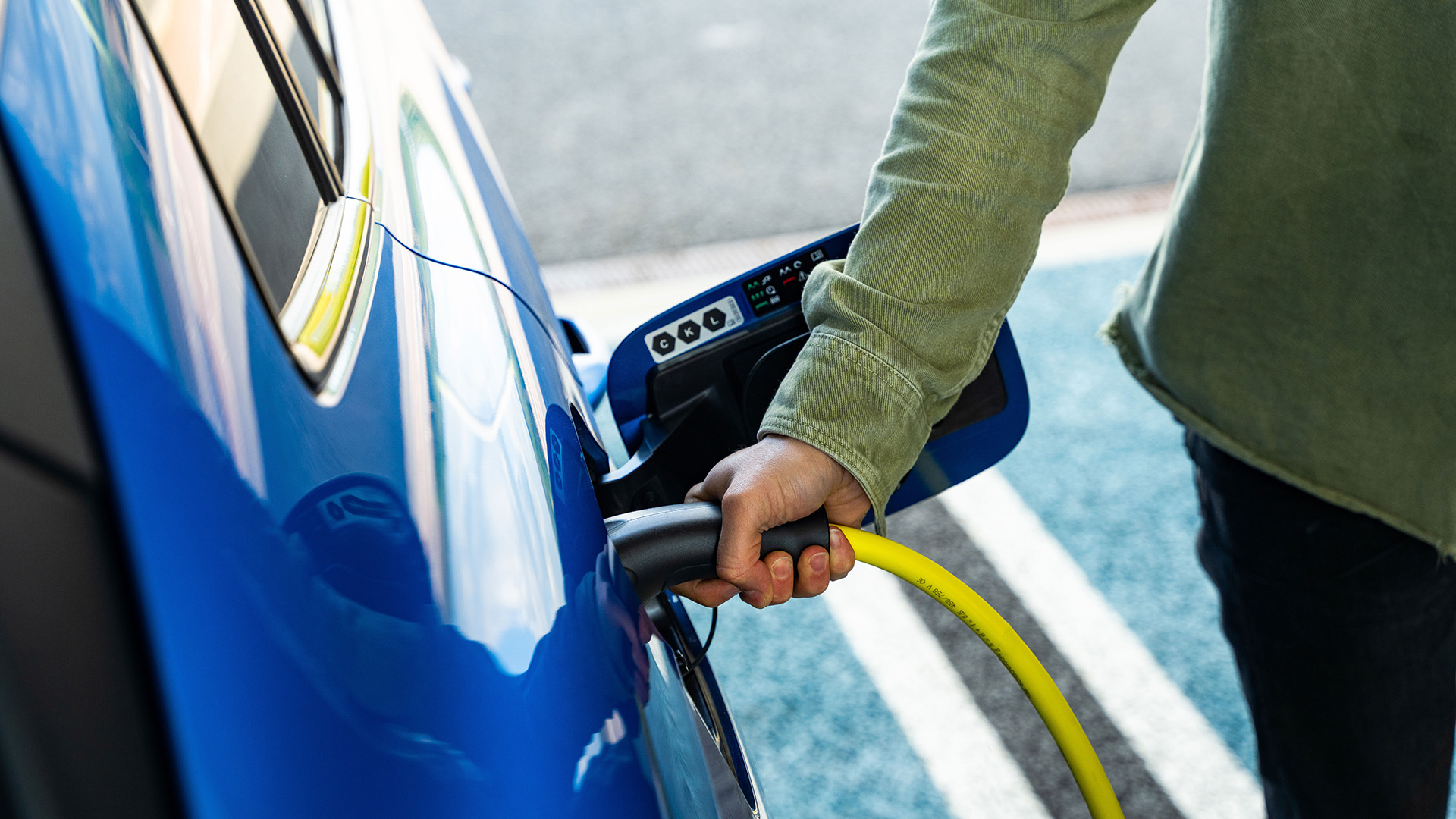
3. Charging the car hasn’t been an issue
Like most in the capital, we have regular public roadside parking which, unfortunately for EV owners, means going without the best option possible: plugging in at home overnight. I have seen the occasional brave soul running a cable across the pavement to their parked EV, but I personally wouldn’t take the risk of any lawsuits.
Wandsworth Borough Council (my local council) say that “running a cable across the pavement to your car may present a hazard or an obstruction to other street users and is not permitted under the Highways Act 1980." and that, "you would be liable in the event of any incident caused by a cable, so if you do choose this course of action we advise you to have public liability insurance that specifically covers this situation."
Therefore, we relied on local public charging stations, and there were dozens to choose from within a few minutes' drive. I used those from Believ most frequently, as there were a good number of them, and they tended to be the cheapest and easiest to use.
On the whole, there was always a dock available nearby when I needed one, and if my preferred ones weren’t available, there were others nearby. Also, as I work from home, it was easy enough to pop out in the day, let it charge for two or three hours, and then go and collect it.
That’s not to say I didn’t experience the occasional frustration. Downloading a few of the numerous EV charging station providers’ apps to then find that the dock was out of service, or after all that bother, plug in only to find a measly rate of charge which wasn’t worth it.

4. Overnight charging at home is the game changer
If you’re able to plug in at home using an EV home charger, the cost savings when compared to refuelling a petrol car are significant. For example, the 77kWh battery in our Skoda Enyaq iV could be charged from 0-100% for as little as £5.78 on an EV-specific residential tariff (eg from Octopus Energy, at 7.5p/kWH).
Contrast this to the cheapest local public charging dock I used, from Believ, this was seven times the cost at around £43 (56p/kWh). Finally, at the most extreme end of the spectrum, charge from a petrol station’s super fast charger, and it would be in the region of £65.45 (85p/ kWh).
So, put simply, if you don’t have off-street parking - like most in the capital - re-fueling costs are pretty much on a par with regular cars. I must say, this was a slightly disappointing realisation, but there were at least some savings when we headed out for the weekend and plugged in at a friend’s house overnight.
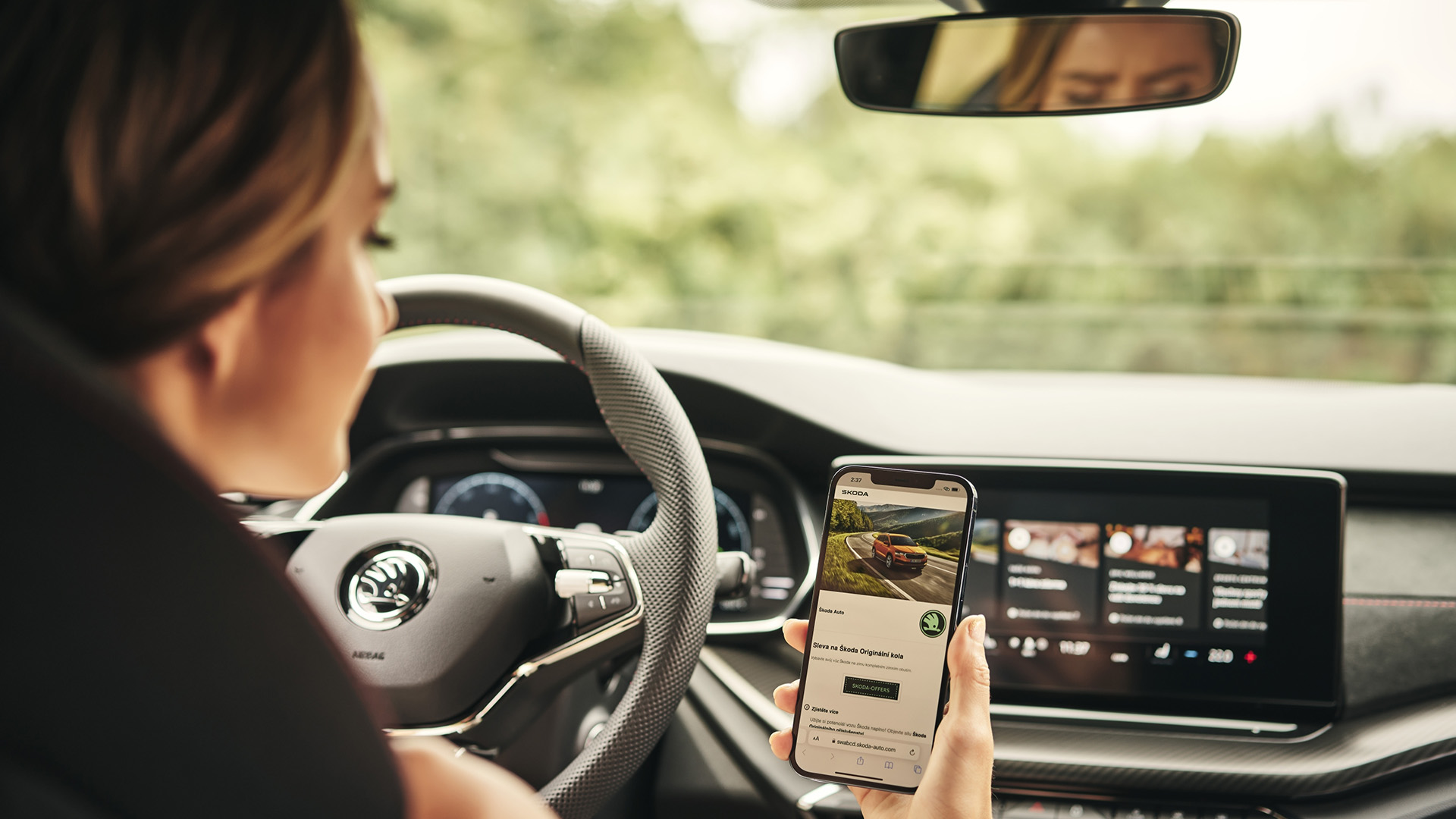
5. Love the Skoda remote app
With frosty and dark winter days, being able to hop onto the MySkoda mobile app and pre-heat the car to a desired temp – a toasty 20 degrees for instance – was a really nice luxury touch. Windows cleared, and the interior nice and warm when putting the kids in.
The app also gives broader status notifications such as if any servicing is required, and rather helpfully if you left the car unlocked or a window opened – which in the chaos of removing kids after a journey has come into action more often than I expected.
The summary, so far!
I’m surprised to find myself saying it, but after two months of using the Enyaq exclusively, the transition from petrol to full EV as our family car has been entirely smooth. Our numerous three or four-mile trips running errands throughout the week impacted battery life minimally. Then, our weekend trips to the countryside were within the sweet spot of the car’s range of around 100 miles each way. And staying overnight, we were able to use a three-point plug of the house we were staying out which would trickle sufficient charge in to get us home, and some.
Sure, it took a week or two to settle in – figuring out the best local charges to use, downloading the apps to control the charging docks, overcoming a little range anxiety – but after this, it has been plain sailing, and having an EV didn’t affect how we used the family car in any way.

Since rowing 3,000 miles across the Atlantic Ocean ten years ago, Fergus has continued to seek out all things outdoors, adventure and endurance. Whether it's running ultramarathons across deserts or mountain ranges, surfing, free diving, or clocking up hundreds of kilometres most weeks on a bicycle, this is where he's happiest. A freelance writer and editor for the past six years, he puts outdoor gear rigorously through its paces.